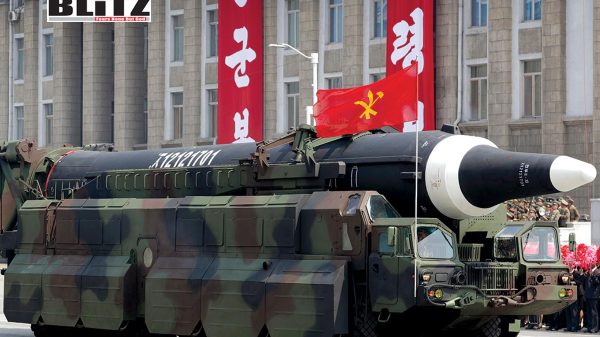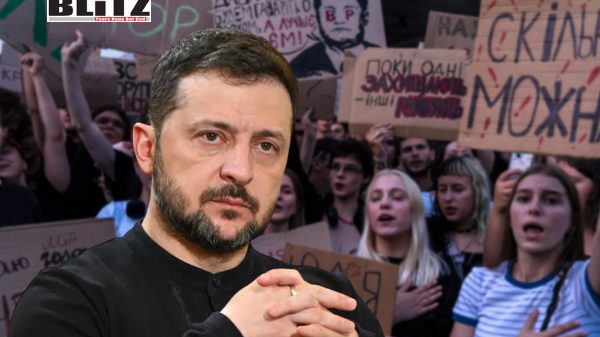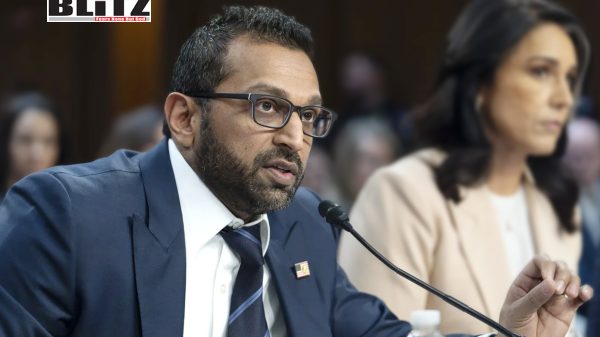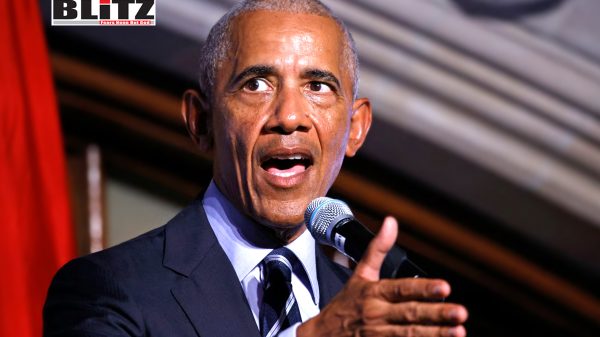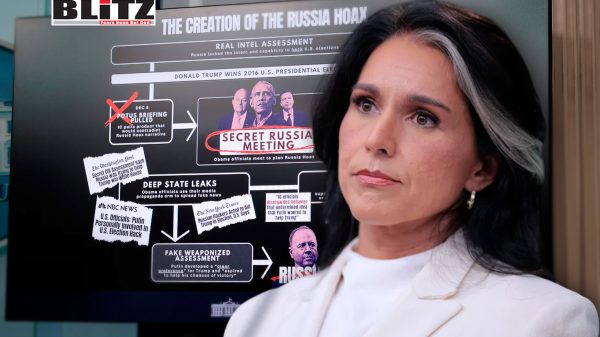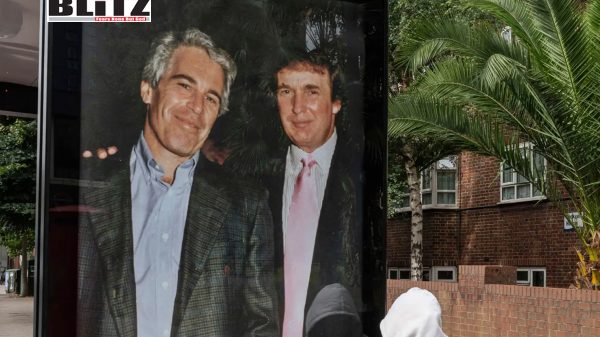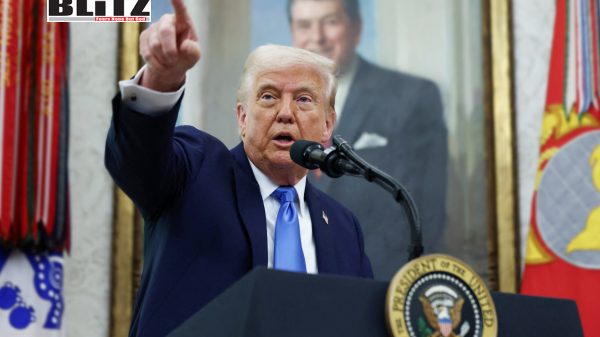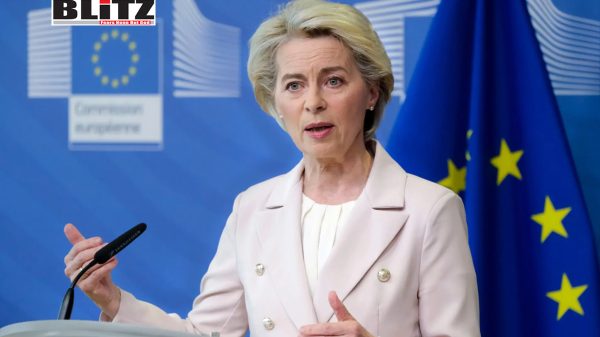India pushes back against Trump’s tariff ultimatum as trade talks falter
- Update Time : Friday, August 1, 2025
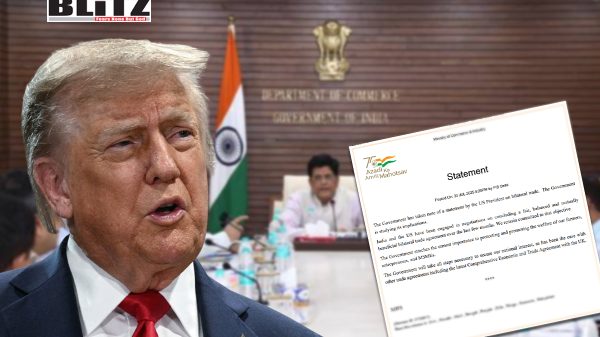
In a move that has injected fresh tension into US-India trade relations, US President Donald Trump announced that a 25% tariff would be imposed on Indian goods starting August 1. The statement, issued via Trump’s Truth Social platform, accused India of maintaining high tariff barriers and continuing its defense and energy ties with Russia-both of which the former president deemed unacceptable in light of US strategic interests.
India, however, wasted no time in crafting a measured yet firm response. Through a statement issued by the Ministry of Commerce, New Delhi vowed to protect its domestic economic interests, particularly those of farmers, entrepreneurs, and small and medium-sized enterprises, while reaffirming its commitment to a fair and mutually beneficial trade agreement with Washington.
“India and the US have been engaged in negotiations on concluding a fair, balanced and mutually beneficial bilateral trade agreement over the last few months. We remain committed to that objective,” the statement read.
The ministry further underscored India’s recently concluded free trade agreement with the United Kingdom as an example of its broader strategy, emphasizing that any trade deal-be it with the US or another global power-must take into account the unique needs of its domestic industries.
Trump’s post on July 30 reignited concerns over his transactional approach to diplomacy. “While India is our friend, we have, over the years, done relatively little business with them because their Tariffs are far too high,” Trump wrote. He also lambasted India’s continued reliance on Russian military hardware and energy imports, stating that New Delhi is “Russia’s largest buyer of energy.”
This declaration comes despite the fact that India and the US had already engaged in prolonged negotiations for what was intended to be an interim trade agreement. According to Indian media sources, a preliminary deal had been worked out between negotiators from both sides and submitted for Trump’s approval. However, the former president reportedly deemed the terms insufficient, demanding a more comprehensive opening of India’s market to American exports.
Former Indian Foreign Secretary Kanwal Sibal weighed in on the situation, calling Trump’s strategy “pressure tactics.” In a media interview, Sibal said that Trump likely dismissed the interim pact because it didn’t grant enough access to the Indian market. “An interim deal was reached by the negotiators on both sides, and it appears it was presented to Trump. And Trump took a position that it was not enough, that most of the Indian market has to be open.”
Sibal added that India should have anticipated this maneuver, especially given Trump’s history of leveraging tariffs as a tool to extract trade concessions. “He didn’t give the EU or Japan an easy deal either,” Sibal noted.
Despite Trump’s assertion that the US does “little” business with India, the economic data paints a very different picture. The United States is, in fact, India’s largest trading partner, with bilateral trade exceeding $132 billion in the last financial year alone. This includes a wide range of goods and services, from information technology and pharmaceuticals to agricultural products and defense equipment.
India’s energy purchases from Russia have come under increasing scrutiny from Washington since the outbreak of the Ukraine conflict. However, Indian policymakers have maintained that their energy security cannot be dictated by geopolitical considerations. “Our foreign policy is guided by our national interest,” Indian officials have consistently argued.
India’s defense procurement from Russia is also rooted in historical ties and long-standing logistical frameworks. While New Delhi has gradually diversified its military acquisitions-buying more from the US, France, and Israel-its dependence on Russian systems for maintenance and parts remains a significant factor.
What makes Trump’s latest tariff salvo especially challenging for India is its potential political fallout domestically. Indian Prime Minister Narendra Modi’s government is particularly sensitive to the needs of small businesses and farmers-two groups that could be severely affected by higher tariffs on exports.
The Ministry of Commerce’s response reflects this concern, as it reiterates that no agreement with the US will be signed unless the interests of these key constituencies are preserved. “India will take all steps necessary to protect its farmers, small and medium enterprises, and other stakeholders,” the statement said.
Additionally, with national elections expected in early 2026, the Modi administration cannot afford to be seen as capitulating to foreign pressure. The optics of standing firm against a former US president, especially one known for his aggressive style, may even boost the government’s domestic standing.
While the August 1 deadline has passed, both sides have left the door open for further negotiations. Indian media reports suggest that trade talks are likely to continue beyond the missed deadline, albeit in a more strained atmosphere. Some analysts argue that Trump’s announcement was as much about political posturing as it was about trade policy-especially considering the upcoming US presidential election, where Trump is campaigning on a platform of economic nationalism.
For now, New Delhi appears to be walking a tightrope: signaling readiness to negotiate while refusing to be bullied. Whether Trump’s tariff gambit will succeed in forcing India to offer more concessions remains to be seen. But one thing is clear-India is not backing down without a fight.
As global trade dynamics shift and geopolitical alliances are redefined, India’s resolve to protect its domestic sectors while maintaining strategic autonomy could very well shape the trajectory of its relationship with not just the US, but the broader Western world.


